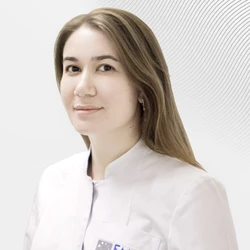Sleep Medicine
Sleep properties
What is the risk of sleep disorders?
How much sleep does a person need?
What should I do if sleep is disrupted?
Insomnia treatment: sleeping pills
Sleep disorders
For many centuries, sleep has been viewed as a state of rest and decreased reactivity to external stimuli. But recently, an increasing number of facts have been accumulating that do not fit into the usual ideas about sleep and make this definition incorrect. What sign of sleep can be considered its necessary condition?
Sleep properties
The main feature of sleep is, first of all, its rhythmicity. The rhythmic alternation of sleep phases makes it possible to distinguish normal sleep from monotonous "sleep-like states." As part of "normal sleep," stages 1-2-3-4 of slow-wave sleep should alternate, followed by rapid (paradoxical) sleep. Such a fundamental change in ideas about the nature of sleep was the result of the emergence of the science of sleep, somnology, in the second half of the 20th century. Currently, somnology is one of the fastest growing branches of the science of the nervous system.
Currently, doctors and researchers have proven that even minor chronic sleep and wakefulness disorders are very dangerous to health and fraught with serious consequences. They can be one of the most important causes of work injuries, incidents and disasters, provoking the so-called "human factor".
At the same time, the lifestyle of a modern person, especially in large cities, is poorly consistent with the requirements of "sleep hygiene". An abundance of bright electric light, increased noise levels, working with a computer, watching television programs at night – all this negatively affects sleep.
The situation continues to worsen, which is why sleep correction centers, sleep research institutes are being established in many countries, and drug-free treatment methods are being developed. One of the most important directions in "sleep medicine" is the creation of effective and harmless new generation drugs.
What is the risk of sleep disorders?
1. When chronic lack of sleep reduces long-term concentration and memory.
2. Lack of sleep affects carbohydrate metabolism and the hormonal system. Currently, many studies confirm that sleep deprivation and metabolic disorders are related. Obesity, diabetes, and cardiovascular diseases are becoming more widespread, partly because we are sleeping less and more erratically. In recent years, several experiments have shown that people who sleep very little or poorly are more likely to be obese. Hormones that regulate appetite play a crucial role in this process. Those who sleep too little have increased levels of the hunger hormone ghrelin in their blood, while the amount of appetite-suppressing leptin is reduced.
3. Lack of sleep weakens the body's immune system. When sleep is reduced, the human body produces significantly less growth hormone. This means that lack of sleep reduces the possibility of regeneration for the internal organ system. If organs do not have enough time and material to replace old or diseased cells with new ones, they will perform worse and their resistance to disease will decrease.
How much sleep does a person need?
A study conducted at the American Institute of Health showed that the average person needs 8 hours and 15 minutes to sleep.
In summer, when the daylight hours are longer, we need a little less sleep than in winter. But every person has their own need for sleep. It is caused by genetics and depends on many factors. Any numbers in the range from 5 to 10 o'clock are considered normal.
What should I do if sleep is disrupted?
According to the general opinion of experts, sleep hygiene is very important. These are specific and easily obeyed rules that lead to physical and mental readiness for a normal sleep:
- Limit the amount of time you stay in bed. Go to bed when you really want to sleep, and get up in the morning as soon as you feel like you've had enough sleep.
- Use the bed only for sleeping. Remove the TV from the bedroom, do not eat in bed. If you wake up in the middle of the night and can't sleep, get up in at least half an hour and find some quiet activity - reading or housework. Do not go back to bed until you feel that you really want to sleep.
- Keep regular sleep hours. Get up and go to bed at the same time, including on weekends. Following a diet and exercising at the same hours also contribute to the synchronization of internal rhythms, their stabilization and enhancement, which has a good effect on the quality of sleep.
- Remove the clock from the bedroom. This will help to avoid looking at the clock at night and the feeling of adjusting time caused by it.
- Sleep mostly at night. Avoid daytime sleep, and if it is difficult for you, limit its duration to 1 hour. You should not sleep after 3 p.m.
- Spend your day more actively. Try to exercise regularly, preferably daily, and generally move more, if possible outdoors. It is important not to overexert yourself in the last hours before going to bed. In the evenings, especially just before bedtime, any strenuous, blood-stimulating, and highly focused activities are prohibited, including hot and very cold baths, mopping floors, sports, and computer work.
- At least 3-4 hours before bedtime, do not drink coffee, tea, Coca–Cola, or take caffeinated or other stimulant medications. During the day, caffeine should also be consumed in moderation, otherwise withdrawal symptoms begin at night. Cigarettes have a similar effect.
- Do not drink alcohol 4-6 hours before bedtime. Alcohol interferes with long-term sleep.
- Don't overeat at night. A hearty dinner can deprive you of sleep for a long time.
- The bedroom should be cozy, the temperature is about 18 C, ventilate the room well and cover the windows tightly from the light. If all these measures do not help, do not be afraid to ask the advice of a specialist in sleep disorders, a somnologist.
Insomnia treatment: sleeping pills
Do not take any sleeping pills or sedatives without a doctor's prescription, even harmless and over-the-counter ones. The main disadvantage of powerful sedatives is that the brain gets used to them sooner or later. When you try to give them up, withdrawal syndrome occurs. Patients suffer from increased anxiety and very poor sleep. It's another matter if the therapy was prescribed by a somnologist. The doctor knows exactly in what dosage you can take a particular sleeping pill or sedative. Along with pills, behavioral therapy is always used for chronic insomnia: relaxation, sleep hygiene and compliance with the regime.
Sleep disorders
The International Classification of Sleep Disorders (ICSD) is the most widely used classification system of sleep disorders. The third version of ICSD (ICSD -3) includes seven major sleep disorders:
Insomnia (insomnia)
It includes conditions characterized by problems falling asleep, maintaining sleep, or poor sleep quality.
Sleep-related respiratory disorders:
Central sleep apnea syndrome.
- Central sleep apnea with Cheyne–Stokes respiration
- Central sleep apnea due to somatic disease without Cheyne-Stokes respiration
- Central apnea due to high-amplitude periodic breathing,
- Central sleep apnea due to taking medications or substances,
- Primary central sleep apnea,
- Primary apnea of newborns,
- Primary sleep apnea in premature infants,
- Central apnea resulting from treatment.
Obstructive sleep apnea syndrome.
- Obstructive sleep apnea in adults,
- Obstructive sleep apnea in children.
Sleep-related hypoventilation disorders.
- Obesity – hypoventilation syndrome,
- Syndrome of congenital central alveolar hypoventilation in children,
- Late-onset central hypoventilation syndrome,
- Idiopathic central hypoventilation,
- Sleep-related hypoventilation due to the use of drugs or substances,
- Sleep-related hypoventilation due to somatic diseases.
- Sleep-related hypoxemia.
Hypersomnia of central origin
- Narcolepsy (type 1 and type 2).
- Idiopathic hypersomnia.
- Klein–Levin syndrome.
- Insufficient sleep syndrome (including voluntary sleep deprivation).
- Hypersomnia associated with drug use, somatic and mental illnesses.
Circadian rhythm disorders of sleep and wakefulness (chronic or ongoing sleep disturbance due to a mismatch between the environment and the individual sleep–wake cycle in humans)
- Sleep disorders related to shift work.
- Jet lag disorder.
- Sleep and wakefulness disorder, characterized by falling asleep earlier and waking up earlier (more common in the elderly).
- Irregular sleep-wake rhythm is characterized by the absence of a specific circadian rhythm. This disorder is usually associated with impaired regimen in childhood and with neurodegenerative diseases such as Alzheimer's disease, Parkinson's disease and Huntington's disease.
- Disorders of the circadian sleep cycle (non- 24 - hour sleep –wake rhythm disorder), characterized by excessive drowsiness or insomnia, which occurs due to the fact that the internal circadian rhythm is not adapted to the 24-hour daily cycle. In most cases, this disorder affects blind people who are unable to determine circadian rhythms. Circadian rhythm disturbances can also occur due to somatic, psychiatric, or neurological disorders.
Parasomnia (unusual movements, sleep behavior, nightmares)
Non-rapid eye movement (NREM) parasomnia of arousal disorders:
- waking up with confused consciousness;
- sleepwalking;
- nightmares in a dream;
- sleep-related eating disorders.
Rapid eye movement (REM)-related parasomnia:
- sleep paralysis;
- nightmares.
Parasomnia unrelated to sleep stage:
- hallucinations in dreams;
- nocturnal enuresis;
- parasomnia associated with somatic diseases and taking medications.
Sleep-related motor disorders (characterized by simple, stereotypical movements that interfere with sleep)
- Restless legs syndrome,
- Periodic movements of the limbs,
- Sleep-related crumpy syndrome,
- Sleep-related bruxism (gnashing of teeth),
- Sleep-related rhythmic movement disorders
Other sleep disorders
This category includes sleep disorders that do not meet the classification, as well as cases where there are more than one sleep disorder or cases of insufficient evidence collection to establish a diagnosis.
To provide professional medical care to patients with sleep disorders, it is necessary to conduct a comprehensive examination by a specialist. The Clinic of Neurology and Neurosurgery of the European Medical Center offers patients the diagnosis of sleep disorders according to the most modern protocols using polysomnography, the gold standard in somnology. According to the results of the study, treatment is prescribed, which may include pharmacotherapy, behavioral therapy, therapy using CPAP, BIPAP devices. (CPAP engl. Constant Positive Airway Pressure, CPAP — mechanical ventilation mode with constant positive pressure and BIPAP Engl. Bilevel Positive Airway Pressure, BPAP — two-level positive pressure in the respiratory tract).
We all know that for rest and recuperation we need adequate quality sleep, which is one of the main factors determining a person's quality of life. That's why it's so important to find time and arrange for a good night's sleep.
Make an appointment for a consultation and we will contact you for more details
Why the EMC
The first and only clinic in Russia, created in the image of the world's leading clinics
EMC is a multidisciplinary center offering patients a high level of medical services and a personalized approach
600
world-renowned doctors
57
treatment directions
36
years take care of your health
24/7
we work at any convenient time
Worldwide recognition and awards
Our achievements have been confirmed by prestigious international awards
 Learn more
Learn more
Worldwide recognition and awards
We work according to international standards, we have licenses and certificates
 Certificates and licenses
Certificates and licenses
Make an appointment for a consultation
Specify your contacts and we will contact you to clarify the details
Reviews
Richard Hume,
City: -
Excellent treatment from Dr Dragan
Excellent treatment from Dr Dragan.
Clinic:
Neurology Clinic
Doctor:
Dragan Ivan
12 January 2026
Richard Hume,
City: -
Very pleased with the treatment
Very pleased with the treatment and consultation from Dr Dragan.
Clinic:
Neurology Clinic
Doctor:
Dragan Ivan
5 January 2026
Richard Hume,
City: -
I was very pleased indeed with the medical treatment
I was very pleased indeed with the medical treatment I received today from
both Dr Dragan, the neurologist at Schepkina and Dr Vasilev, the traumatologist at Orlovskiy. Thankyou Both !
Clinic:
Neurology Clinic
Doctor:
Dragan Ivan
26 December 2025
Richard Hume,
City: -
I am very grateful
A Big Thankyou to Dr Volkov at Schepkina and to Dr Shomahov Murat at Orlovskiy
today, for some excellent treatment and counselling. I am very grateful.
Clinic:
Neurology Clinic
Doctor:
Volkov Sergey
23 December 2025
Independent assessment of the quality of services provided by medical organizations
We accept payment
© 2026 The European Medical Center
Ways to contact the clinic
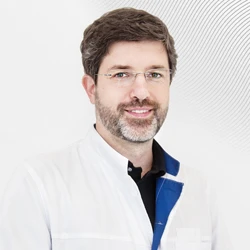

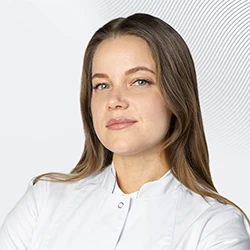

.webp)
.webp)
.webp)
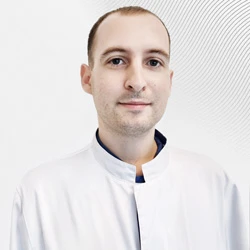
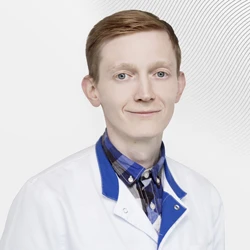


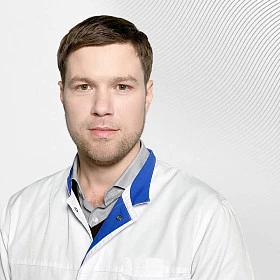



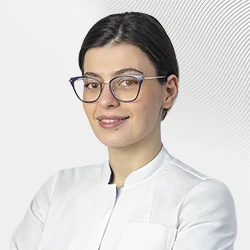
.webp)
.webp)
